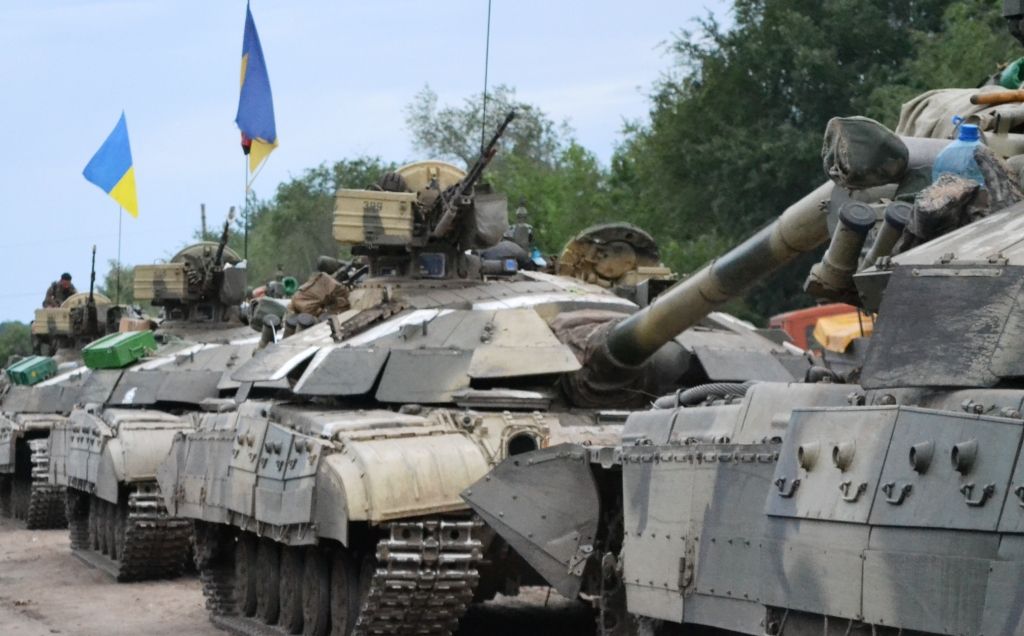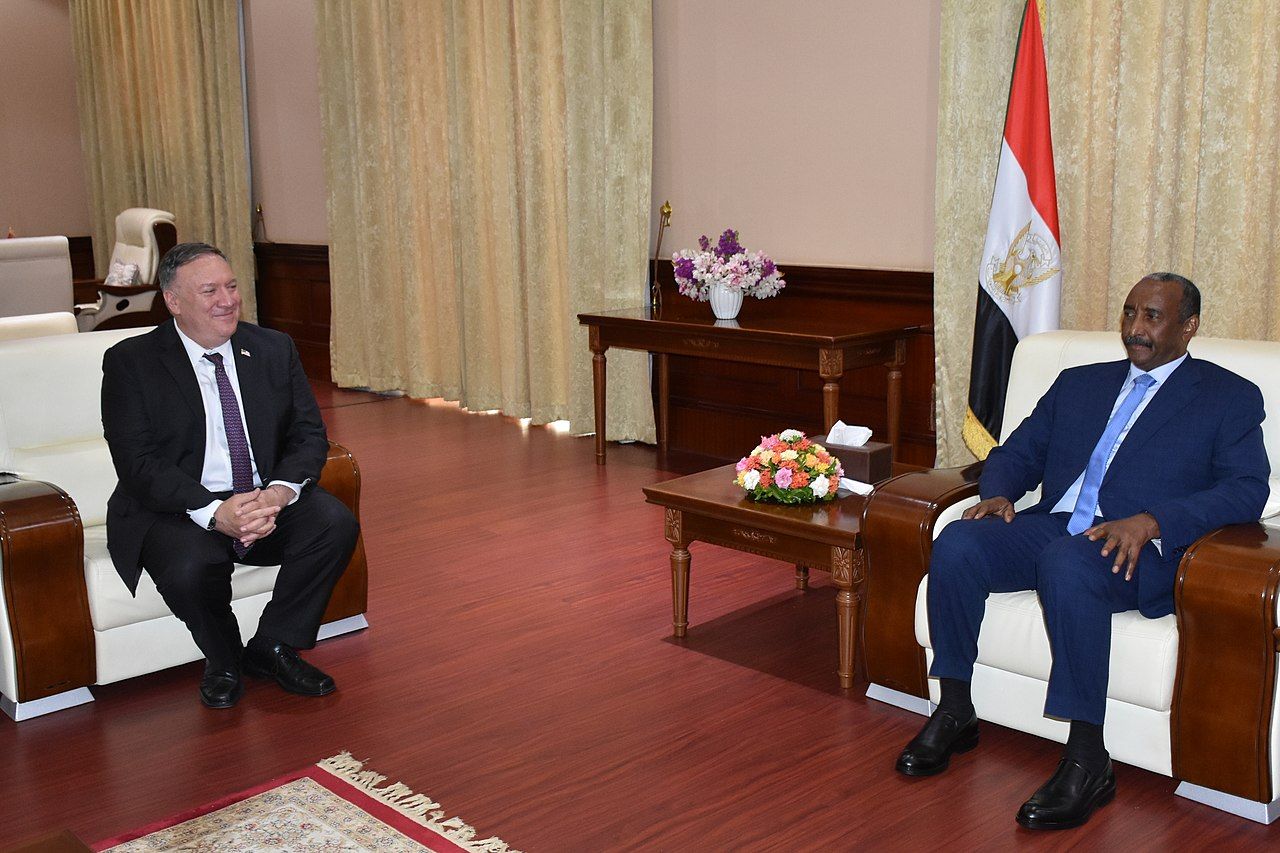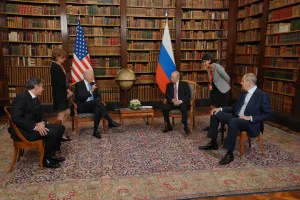Christopher Healey holds a BS in Political Science and Religious Studies from Kenyon College, where he also studied French. He recently took a leap of faith and created a Twitter. You can find him at @Christaps13.
The world is watching in shock as Russia continues its unprovoked and unjustified invasion of Ukraine. While the speed of the initial Russian advance writ large has been slower than expected, Russians are closing in around Kiev and other cities. What’s more, a measurable portion of Russia’s total forces have yet to join the fight.
The wellbeing of the Ukrainian people facing slanted military odds and an increasingly belligerent President Putin—who just placed deterrence forces (which include nuclear weapons) on higher alert—ought to be a major concern of the international community. In what is the greatest foreign policy challenge facing any U.S. president since the Cold War, President Biden has passed the test, so far.
Make no mistake: the events in Ukraine—and the inability of the U.S. to prevent them—mark the end of America’s hegemony in the post-Cold War global order. At the same time, China—despite its uncertainty about Putin’s behavior—poses a credible threat to the security architecture in the Indo-Pacific.
President Biden’s strategy thus far—in particular his prudent decision not to engage directly in conflict with Russia—appears to acknowledge this unfortunate reality.
There are entirely valid concerns about the corrosive influence of the American military industrial complex on our democracy. Reasonable as well are critiques of Western policy decisions which may have contributed to the situation at hand. These criticisms, however, thankfully have not hindered us from arming Ukraine to the teeth with weapons such as Javelins and Stinger missiles.
Moreover, while some potential sanctions items have been left off the table (Italy’s refusal to include luxury goods in a sanctions package is particularly egregious), the U.S.-led effort to rally our European allies in support of Ukraine has largely been successful. Weapons and supplies are flowing in from across Europe and normal citizens are stepping up to combat misinformation and protest in solidarity with Ukraine.
Among other economic sanctions, the European Central Bank choosing to freeze Russian transactions just days into the invasion came as a surprise to many observers. Transatlantic cohesion will remain vital to weathering the economic storm at hand, and these efforts signify a worldwide backlash that the Kremlin may not have fully anticipated.
The United States must proceed with extreme caution, though. The sharp decline of the Russian ruble’s value as a result of sanctions has global implications. Also, the presence of Russian thermobaric weapons—especially brutal and effective explosives—in Ukraine hints that the worst is likely yet to come. Further, conflict spill-over into neighboring NATO members like Poland or Romania, possibly triggering Article 5 and igniting a kinetic war between great powers, remains a possibility. While still unlikely, the consequences of such an event are impossible to convey in words.
The United States should prepare for this worst case scenario by expanding its forward presence in NATO’s eastern flank and planning to stay for the foreseeable future as a deterrent. Still, there needs to be a paradigm shift in European strategic defense philosophy, which has too heavily relied on the American security umbrella that will probably be spread more thinly as the U.S. focuses resources on China and the Pacific. Germany’s recent pledge to surpass 2% in defense spending annually is a critical first step.
Diplomatic channels must remain open to prevent the conflict from spiraling into a global contest which can still be averted. Efforts to shame France’s attempt at diplomacy as capitulation are unhelpful at best, dangerous at worst. “Regime change” as an official policy would be extremely reckless and the U.S. should keep as many offramps open for President Putin to de-escalate as possible.
To that end, the U.S. has been so far successful in supporting Ukraine, avoiding escalation, and rallying its democratic allies together as the global order itself ebbs and flows in dangerous and unpredictable patterns. But we are as yet early into this tragic event, and—as the invasion itself demonstrates—success in one moment can descend into chaotic failure in a split second with enormous consequences.
Subscribe to Spectacles




Comments
Join the conversation